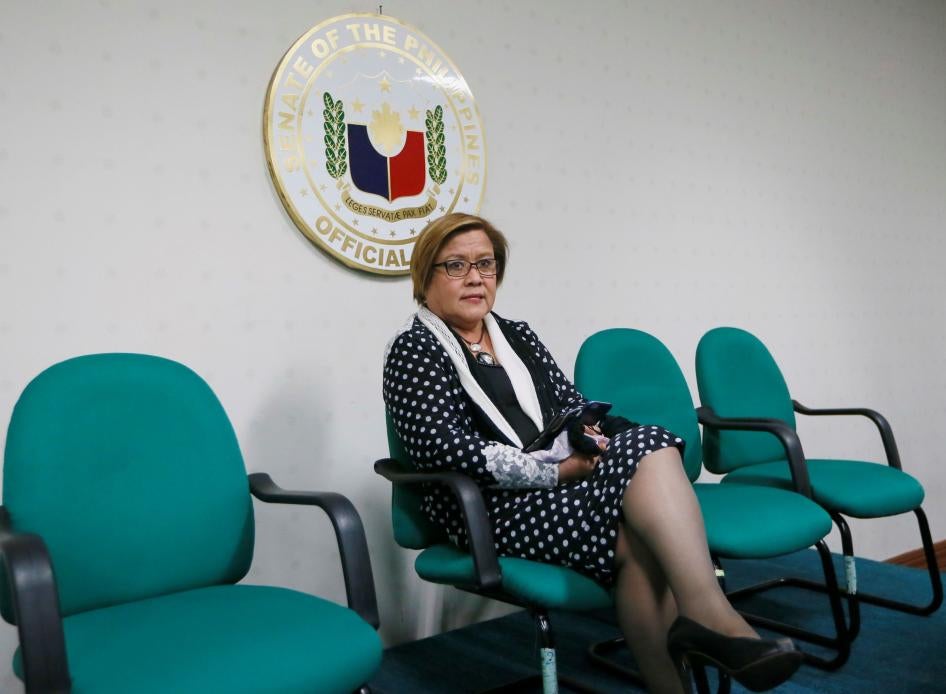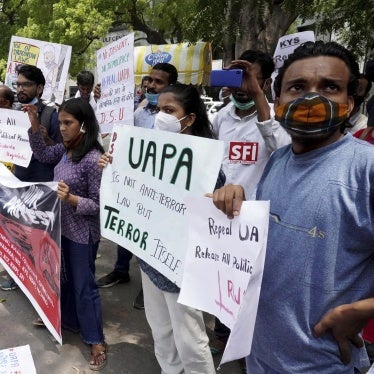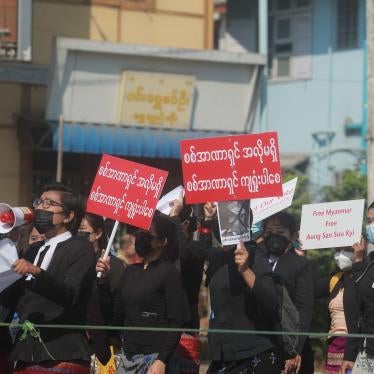Democracy is under an all-out assault in the Asia-Pacific region. People from Hong Kong to Myanmar to Thailand have risked their lives to join peaceful protests or speak out for democratic freedoms that most Australians take for granted.
On March 29, a 15-year-old girl was put in pre-trial detention in Thailand, accused of violating the lèse-majesté (defaming the monarchy) law after her participation in a peaceful protest.
On March 27, I visited former senator Leila de Lima of the Philippines. She has not been convicted of any crime but has remained in police custody for more than six years for opposing former President Rodrigo Duterte’s “drug war” killings. While the Ferdinand Marcos Jr. administration continues to detain her, virtually all those responsible for the thousands of killings in the “war on drugs” walk free.
And on March 28 in Myanmar, the military junta dissolved 40 political opposition parties including the National League for Democracy (NLD). The junta had already imprisoned and convicted NLD leader Aung San Suu Kyi and other opposition politicians on trumped-up charges. But the dissolution of her party is another move towards the junta’s sham elections, organized in an attempt to garner international legitimacy after overthrowing an elected government two years ago.
Since the February 2021 coup, the military has committed a litany of war crimes, crimes against humanity, and other abuses, including executing NLD politician Phyo Zeya Thaw and leading civil society figure Kyaw Min Yu (aka Ko Jimmy).
These are just three examples in the period of a few days, showing how democracy is being eroded across Southeast Asia. More broadly, across the Asia-Pacific region, we are seeing the impact of the Chinese government –its opaque infrastructure projects, easy loans, and trade deals are attractive to many governments. So too is its model of “economic development without rights” authoritarianism. The lack of accountability for Beijing’s abuses provides cover to other abusive governments in the region.
Even countries in Southeast Asia that want to be treated as democracies, like Cambodia and Thailand, are scheduling elections that don’t even purport to be free and fair. They have dissolved genuine opposition parties, tied up political candidates in legal cases, imprisoned politicians or forced them into exile. Functioning but deeply flawed democracies such as India and the Philippines have censored critics and threatened independent journalists and human rights defenders.
To address these threats, there is a need for stronger and more resilient democracies like Australia to press for accountability for serious human rights violations. As the Australian parliament undertakes an inquiry to examine government efforts to support democracy in the region, there are measures the government can take to protect human rights defenders and strengthen democracies that are under siege.
The Australian government quietly supports initiatives to strengthen institutions, build capacity, and promote people-to-people partnerships. That is important work, but both carrots and sticks are needed when it comes to accountability.
Here are five things the Australian government can do to support democracy in the region.
First, the Department of Foreign Affairs and Trade should draft a clear human rights policy requiring regular and public human rights reporting on issues and countries of concern. Human rights should not be limited to ineffective closed-door dialogues among bureaucrats. Any dialogue should include a civil society component. And human rights should be raised both publicly and privately with offending governments.
Second, Australia should show more leadership at the United Nations Human Rights Council when it comes to human rights violations in the Asia-Pacific region. Australia has led on joint statements on abuses in Saudi Arabia and Lebanon. But it has been less willing to risk upsetting neighbouring governments. Failing to do so gives abusive governments a free pass.
The Philippines is a clear example. Despite a strong report from the UN human rights office in 2020, the Philippine government was able to hoodwink UN member states into avoiding follow-up on the report, and UN-recommended accountability measures for its deadly “drug war.” Instead, the Council agreed to a “joint program” with the UN and Philippines government focusing on training and capacity-building, with no monitoring and reporting mandate.
Despite thousands of killings since 2016, only two cases have resulted in convictions of police officers. UN human rights monitoring mandates matter to governments like the Philippines and provide additional pressure to hold abusers to account.
Third, the government should apply targeted sanctions on human rights grounds. Australia adopted a Magnitsky-style law for travel bans and asset freezes against rights violators abroad. The government should apply it in a principled, consistent fashion so that abusers even in powerful countries like China do not evade scrutiny.
Fourth, Australia should support a civil society democracy summit for activists in the region. We’ve seen the high-profile, US-led Summit for Democracy 2023 in recent days. But a meeting that centres the experiences of human rights defenders at risk will help them to deepen their connections, build regional networks, and learn from one another how to organize effectively and monitor human rights.
Finally, the Australian government should invest in strengthening civil society activists and independent journalists who are under attack, including working with groups in exile. Meeting local human rights defenders should be a priority whenever an Australian minister or a politician plans an international visit. Human rights defenders like Leila de Lima need the Australian government’s support.









